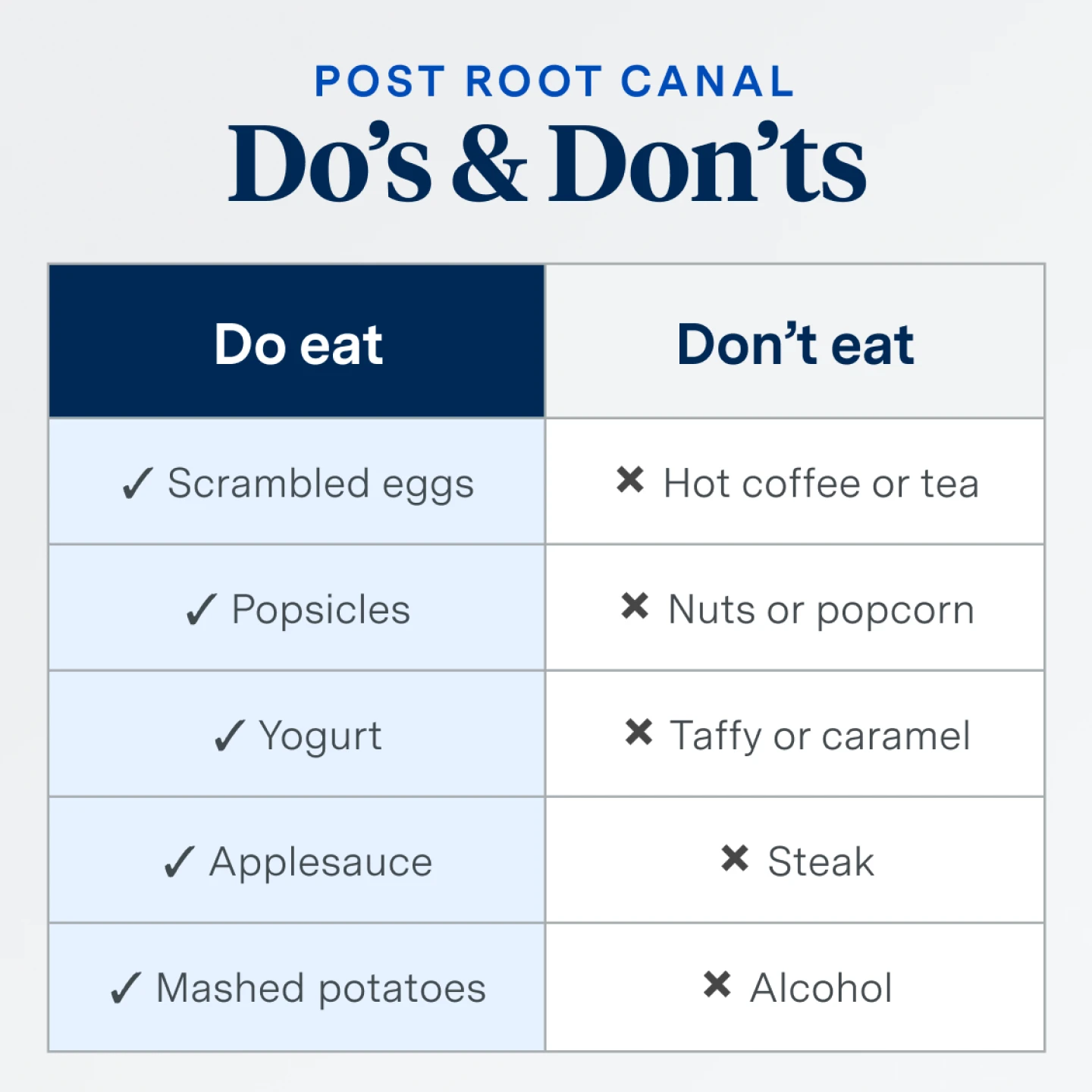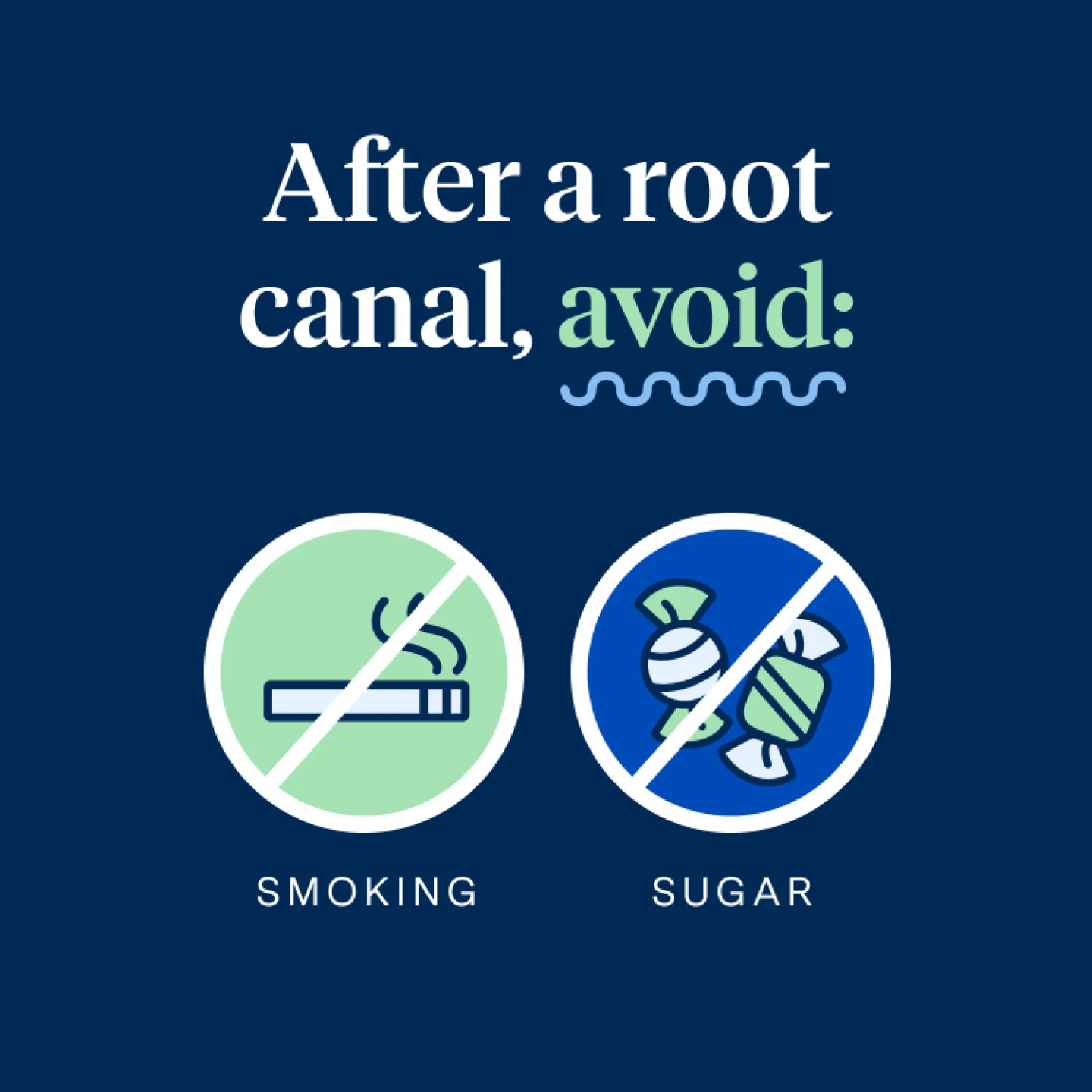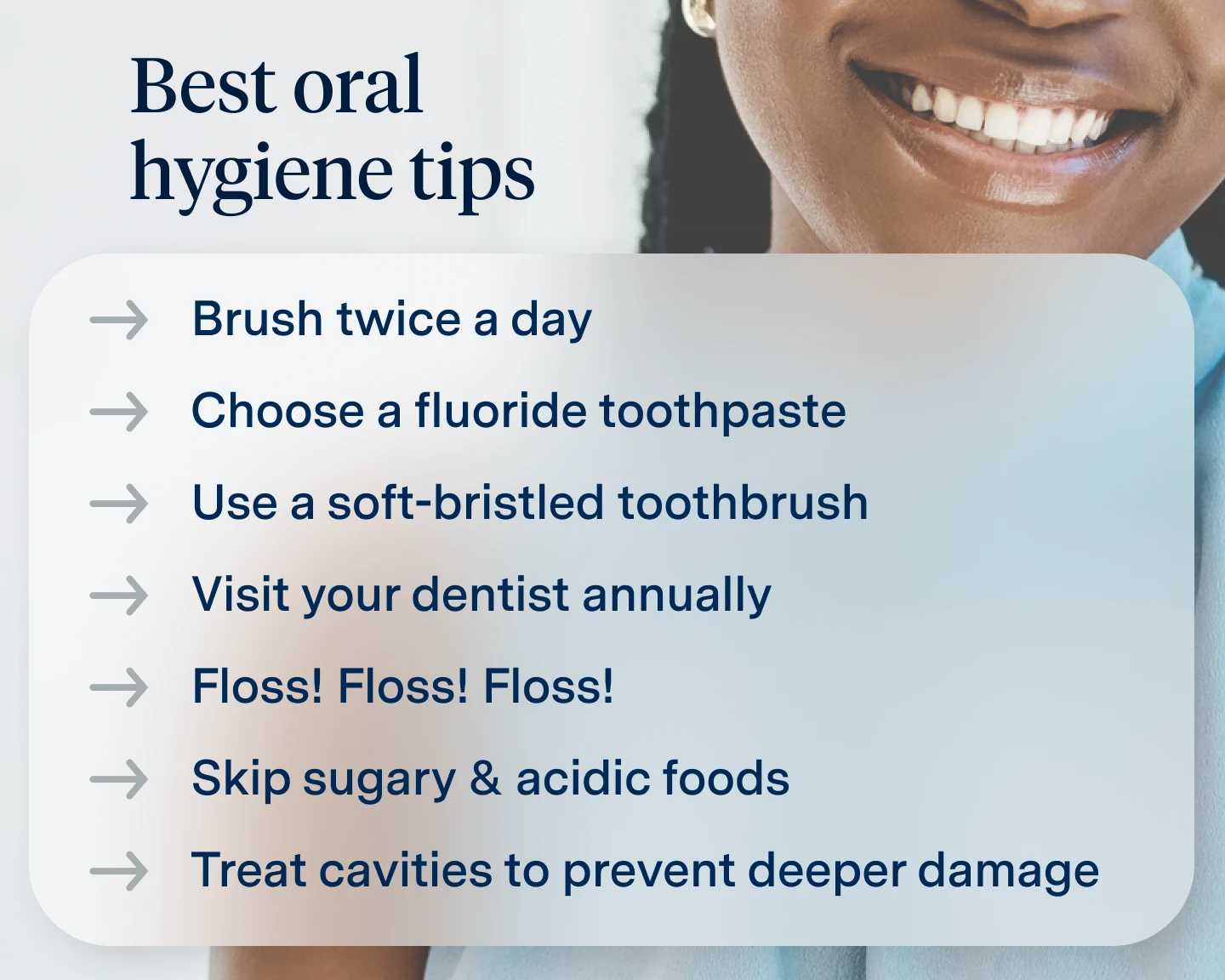How painful are root canals?
It may be a common question, but the good news is, root canal therapy shouldn’t cause you discomfort thanks to modern techniques and advanced anesthesia. At Aspen Dental, your care team will keep you comfortable throughout your entire procedure.
Does a root canal hurt?
This may surprise you—but a root canal shouldn’t be more uncomfortable than similar common dental procedures.
To ensure your maximum comfort during the root canal treatment, your dentist will use local anesthesia to numb your affected tooth and gums. That way, you can expect minimal to no pain during treatment.
Truthfully, the decision to delay treatment is what can contribute to a more uncomfortable experience.
If you’re experiencing discomfort due to tooth decay, it’s best to contact your local Aspen Dental right away. This will help to mitigate potential complications and prevent tooth loss in the future.
The root canal procedure explained
Let’s take a look at a basic root canal treatment.
The steps below are just an overview— if you think you may need a root canal, it’s best to talk with your Aspen Dental dentist to go over a care plan customized to your unique smile.
Examination and X-rays
Apply local anesthesia
Accessing the pulp
Removing the infected pulp
Cleaning and shaping of the canals
Filling the canals
Restoring the tooth
Do people experience pain after a root canal?
While the thought of a root canal may seem intimidating, don’t worry. It’s a relatively simple process that doesn’t require a lengthy recovery time.
You may feel better immediately after the procedure, or you may experience mild discomfort as the anesthesia wears off, but it should only last a few days.
To mitigate any unnecessary pain, your dentist may prescribe you over-the-counter medication. You should be able to return to work and regular daily activities as you heal.
Are there post-root canal restrictions?
Your root canal treatment is considered a basic dental procedure, but there are a few things to remember to help you heal—especially when it comes to eating.
After treatment, your mouth will be numb. To avoid burning your mouth or biting down too hard, it’s best to wait before indulging in your favorite foods again. Once sensation returns, you can ease back into eating and drinking like normal.
If your dentist or endodontist placed a temporary filling on your tooth, they’ll provide you with customized instructions to care for your tooth replacement until you’re able to return to your dentist for your final restoration.
Managing root canal pain
To make sure that your teeth are healing after the root canal procedure, your dentist will likely ask that you revisit the office. However, between dental checkups, it’s essential to care for your oral health at home with proper brushing and flossing.
To keep your teeth healthy and strong, our Aspen Dental dentists also recommend avoiding smoking and consuming sugary and acidic foods.
Additionally, it’s important to stay up to date with your dental appointments so your dentist can take check-up x-rays, examine your mouth, decide what kind of professional cleaning you will need, and to catch any potential issues before they arise.
Early detection of oral health risks is essential to protecting your teeth.
Best oral hygiene practices to reduce the need for a root canal
Proper oral hygiene can help you prevent future root canals and keep your oral health in top shape.
See if a root canal is right for you
To learn more about how a root canal procedure could benefit your oral health, visit your Aspen Dental dentist. They’ll be happy to work with you on a personalized care plan to strengthen the health of your smile.





